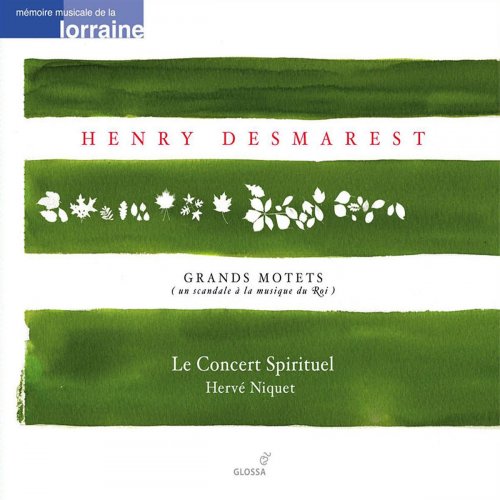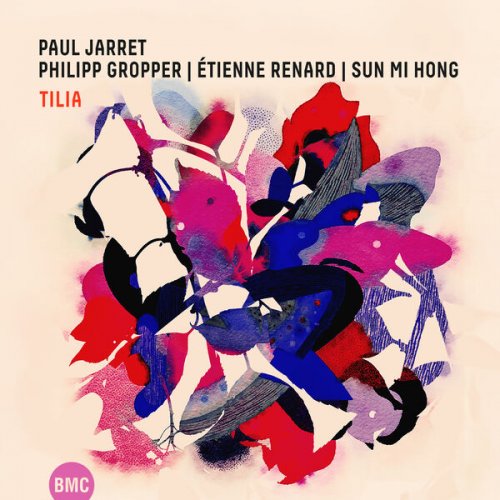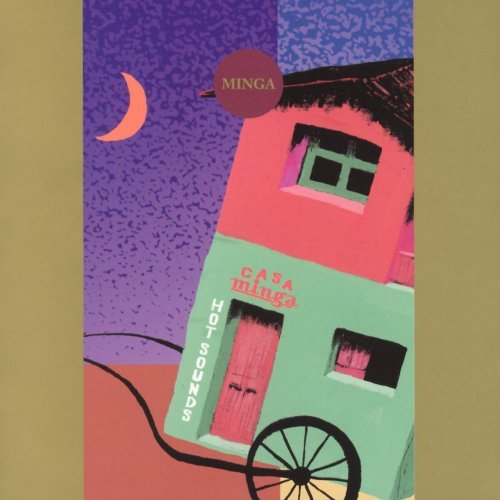Le Concert Spirituel, Hervé Niquet - Desmarest: Grands Motets Vol. II (un scandale à la musique du Roi) (2005)

Artist: Le Concert Spirituel, Hervé Niquet
Title: Desmarest: Grands Motets Vol. II (un scandale à la musique du Roi)
Year Of Release: 2005
Label: Glossa
Genre: Classical
Quality: FLAC (tracks)
Total Time: 56:05
Total Size: 314 Mb
WebSite: Album Preview
Tracklist: Title: Desmarest: Grands Motets Vol. II (un scandale à la musique du Roi)
Year Of Release: 2005
Label: Glossa
Genre: Classical
Quality: FLAC (tracks)
Total Time: 56:05
Total Size: 314 Mb
WebSite: Album Preview
De Profundis (Psaume 129)
1. De Profundis 3:44
2. Fiant Aures 1:45
3. Si Iniquitates 2:53
4. Quia Apud Te 2:05
5. Sustinuit Anima Mea 1:52
6. A Custodia Matutina 2:04
7. Quia Apud Dominum 1:55
8. Et Ipse Redimet 2:04
9. Requiem Aeternam 3:15
10. Et Lux Perpetua 1:48
Veni Creator (Hymne Pour La Fête De La Pentecôte)
11. Veni creator 1:48
12. Qui Paraclitus 2:49
13. Tu Septiformis 0:57
14. Accende Lumen 1:55
15. Hostem Repellas 3:23
16. Per Te Sciamus 2:15
17. Gloria 2:06
Cum Invocarem (Psaume 4)
18. Cum Invocarem 2:02
19. Miserere 1:50
20. Filii Hominum 1:26
21. Et Scicote 3:27
22 Sacrificate 1:00
23. Signatum Est 1:55
24. A Fructu Frumenti 1:18
25. In Pace 2:27
26. Quoniam Tu 1:47
Performers:
Le Concert Spirituel
Hervé Niquet
Over the years, Hervé Niquet has become one of the undisputed masters of the French grand motet. Where others built their career on Bach's cantatas, he chose to explore this noble and refined genre in great detail: Lully, Colasse, Charpentier, Campra, Lalande, Lorenzani, Boismortier, Rameau and, of course, Desmarest - all the composers who brought glory to the French court in the past and who contributed to the great reputation that the sacred art of the Grand Siècle enjoys to this day. Here we have Hervé Niquet with three unpublished grand motets by the still-young Henry Desmarest (he was born in 1661), only a few years after he stopped working as a page at the Royal Chapel. A favourite of the King, the Dauphin and the entire court, he was presented as the worthiest successor to Lully. However, Desmarest was one of the first cases in history of a 'ghost writer'; between 1683 and 1693, he composed a significant number of works which were then signed by Nicolas Goupillet, one of Louis XIV's vice-chapelmasters at Versailles, among them the three motets included on this CD.
These three grand motets are very fresh musical moments, where Desmarest highlighted his personal carte du tendre at leisure, as well as his taste for the learned and bracing counterpoint with its five subtly arranged parts. He played with the new vocal and instrumental possibilities created for the chapel built in 1682, with its colourful masses which contrast, sparkle and exalt the sound. These three works magnificently display the music in the new Versailles, almost as if they were veritable snapshots: elegant, refined, unfurling in space with gravity and majesty.
An additional issue of great interest is the 'presentation in society' of the cromorne, a mysterious instrument of the oboe family which was especially reconstructed for this occasion: listen to its powerful bass sound in the choir parts of the De profundis, the opening motet.
These three grand motets are very fresh musical moments, where Desmarest highlighted his personal carte du tendre at leisure, as well as his taste for the learned and bracing counterpoint with its five subtly arranged parts. He played with the new vocal and instrumental possibilities created for the chapel built in 1682, with its colourful masses which contrast, sparkle and exalt the sound. These three works magnificently display the music in the new Versailles, almost as if they were veritable snapshots: elegant, refined, unfurling in space with gravity and majesty.
An additional issue of great interest is the 'presentation in society' of the cromorne, a mysterious instrument of the oboe family which was especially reconstructed for this occasion: listen to its powerful bass sound in the choir parts of the De profundis, the opening motet.
DOWNLOAD FROM ISRA.CLOUD
Le Concert Spirituel, Hervé Niquet - Desmarest Grands Motets Vol II.rar - 314.1 MB
Le Concert Spirituel, Hervé Niquet - Desmarest Grands Motets Vol II.rar - 314.1 MB

![Mal Waldron - Left Alone (Remastered 2014) (2026) [Hi-Res] Mal Waldron - Left Alone (Remastered 2014) (2026) [Hi-Res]](https://www.dibpic.com/uploads/posts/2026-02/1770802366_zssweohuxq7f9_600.jpg)

![Claude Williamson - Round Midnight (Remastered 2014) (2026) [Hi-Res] Claude Williamson - Round Midnight (Remastered 2014) (2026) [Hi-Res]](https://www.dibpic.com/uploads/posts/2026-02/1770854964_cover.jpg)

![Amir Bresler - See What Happens (2026) [Hi-Res] Amir Bresler - See What Happens (2026) [Hi-Res]](https://www.dibpic.com/uploads/posts/2026-02/1770897850_nf8k6u63fp38i_600.jpg)
![Jacob Anderskov - Vinterstemmer (2026) [Hi-Res] Jacob Anderskov - Vinterstemmer (2026) [Hi-Res]](https://www.dibpic.com/uploads/posts/2026-02/1771036914_d0s5qxbxc5g5l_600.jpg)
![Greg Foat - Opening Time (Library Edits) (2026) [Hi-Res] Greg Foat - Opening Time (Library Edits) (2026) [Hi-Res]](https://img.israbox.com/img/2026-02/11/bthy9h8xur67bx2ig50pfmfkm.jpg)
